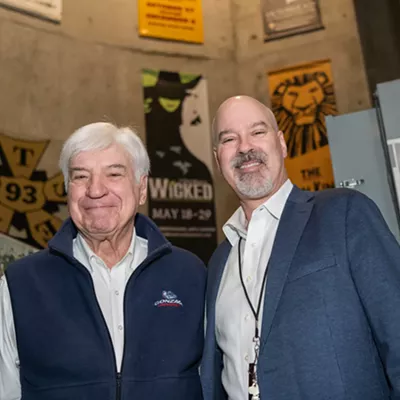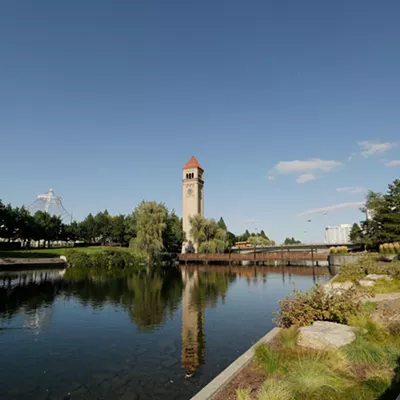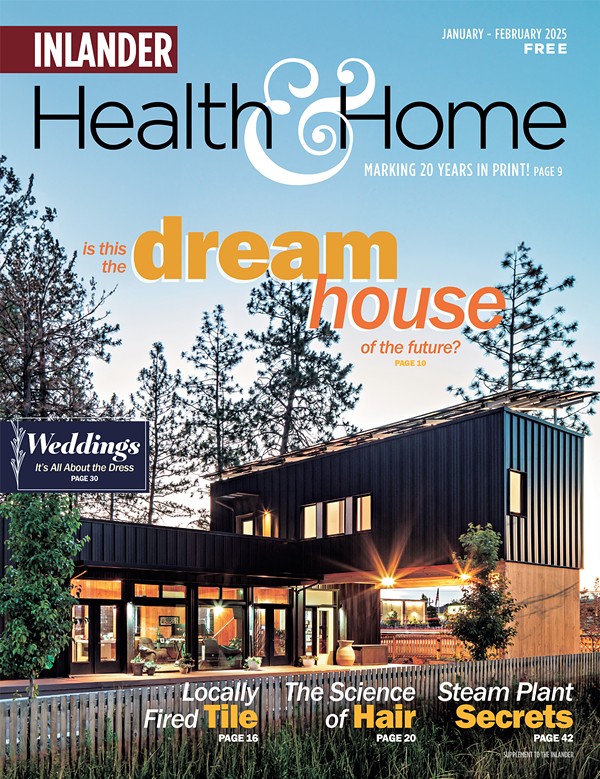Interdependants
[
{
"name": "Broadstreet - Instory",
"component": "25846487",
"insertPoint": "4",
"requiredCountToDisplay": "4"
},{
"name": "Broadstreet - Empower Local",
"component": "27852456",
"insertPoint": "8",
"requiredCountToDisplay": "8"
},{
"name": "Broadstreet - Instory",
"component": "25846487",
"insertPoint": "12",
"requiredCountToDisplay": "12"
},{
"name": "Broadstreet - Instory - 728x90 / 970x250",
"component": "27852677",
"insertPoint": "18",
"requiredCountToDisplay": "18"
},{
"name": "Broadstreet - Instory",
"component": "25846487",
"insertPoint": "5th",
"startingPoint": "23",
"requiredCountToDisplay": "24",
"maxInsertions": 100
}
]
Car sales are bottoming out. New construction is slowing to a crawl. People are bogged down with unprecedented debt. And the rich get richer while the ranks of the poor grow. One expert describes it this way: "A giant suction pump had ... drawn into a few hands an increasing portion of currently produced wealth. ... as in a poker game where the chips were concentrated in fewer and fewer hands, the other fellows could stay in the game only by borrowing. When their credit ran out, the game stopped."
If you think that's a pretty succinct explanation of where we find ourselves today, you're right -- and wrong. All those things I listed were true about the year of 1929, when the Great Depression started with a bang; the quote is from Marriner Eccles, the chairman of the Federal Reserve from 1935-48. But it all neatly, and eerily, describes what is happening today, too.
Every couple of decades we are even more apt to relive our nightmares because, as the late economist John Kenneth Galbraith put it so sardonically, there's a new batch of suckers born every generation. It's pure human frailty -- greed and hubris, especially -- that Galbraith described in his classic, The Great Crash, 1929: "... the mightiest of Americans were, for a brief time, revealed as human beings. Like most humans, most of the time, they did some very foolish things."
Over these past several months, nobody wanted to even write the words "Great Depression" in the same sentence with what's going on today -- it's kind of like comparing every atrocity with the Nazis. Not many rise to that level, and the comparison can seem hysterical.
But those words are out of the bag now, and you can hear "Great Depression" routinely on the evening news.
I say, let's embrace the comparison. One of the things we've got going for us as we try to weather this economic storm is that we've done it before. So just as we studiously ignored the lessons of the Depression lately, let's start hitting the books.
Vast archives have been written on the subject, and more are coming out now, as academics rediscover the wisdom America gained and so quickly forgot. But it's wisdom that's still there, and we need all we can muster.
One of the big lessons of the Great Depression is that government intervention can actually make it worse. Protectionist measures in the 1930s made the contagion spread around the world and deepened the crisis. But in the trial-and-error approach, we found that one of the most beneficial things the government can do is simple: keep people working. The Works Progress Administration and the Civilian Conservation Corps left a lasting mark on the nation's infrastructure (Grand Coulee Dam being one of the most spectacular examples), and those workers were able to support their families and participate in the economy.
The cost of not keeping people employed during the 1930s was in blood. Unemployment and poverty left entire populations open to the demagoguery of the likes of Hitler. The bitterest lesson of all, perhaps, is that what ultimately pulled America out of the Depression was World War II -- at the cost of millions of human lives. Avoiding a repeat of that history should be on everyone's minds.
Unthinkable as it might seem, we could have seen a similar result here at home -- an effort to blame someone else for what was clearly our own mistake. But we got the leader we needed.
"Danger to one is danger to all," Franklin Roosevelt told a cheering crowd at Chicago Stadium in 1932, having just secured the Democratic nomination for president -- an office he would hold for a dozen years. As historian H.W. Brands describes in his crisp new biography of FDR, A Traitor to His Class, this was the right man for the times.
In January 2007, I wrote about the upstart candidacy of Barack Obama and compared him to John Kennedy -- his optimism, his inspiring words, his youth. Now he's looking more and more like FDR for the challenges he's inheriting. Today we can only hope that he, like Roosevelt, is the right leader at the right time.
But Roosevelt ended his remarks in Chicago, delivered not far from where Obama spoke in Grant Park last week, with the true lesson of what was only just starting to unfold.
"... this nation is not merely a nation of independence," Roosevelt said, "but it is, if we are to survive, bound to be a nation of interdependence."
Yes, the government will play a role in pulling us out of this mess, but the people have a part to play, too. Even here in the Inland Northwest, we need to be a region of interdependence. If you are a business owner, maintain your employment levels the best you can. If you are banker, loosen your grip on your money the best you can. If you are a citizen, remember that every time you spend money with a local business, you are keeping the game going. And we all need to remember the least among us, who, if the Depression is proof, will suffer the most; philanthropy will be sorely needed.
The final lesson of the Great Depression? It was one hell of a character builder. It spawned the so-called Greatest Generation and an unprecedented era of prosperity and international cooperation -- the America we have known most of our lives. Already our character is showing through, our hard-won wisdom is coming to the rescue and the world, again, is looking to us for leadership.
Like getting back in shape after a heart attack, this won't be easy. But with everyone pulling together behind some smart, time-tested solutions, maybe our grandkids will one day read about the Great Rebound.
[email protected]
If you think that's a pretty succinct explanation of where we find ourselves today, you're right -- and wrong. All those things I listed were true about the year of 1929, when the Great Depression started with a bang; the quote is from Marriner Eccles, the chairman of the Federal Reserve from 1935-48. But it all neatly, and eerily, describes what is happening today, too.
Every couple of decades we are even more apt to relive our nightmares because, as the late economist John Kenneth Galbraith put it so sardonically, there's a new batch of suckers born every generation. It's pure human frailty -- greed and hubris, especially -- that Galbraith described in his classic, The Great Crash, 1929: "... the mightiest of Americans were, for a brief time, revealed as human beings. Like most humans, most of the time, they did some very foolish things."
Over these past several months, nobody wanted to even write the words "Great Depression" in the same sentence with what's going on today -- it's kind of like comparing every atrocity with the Nazis. Not many rise to that level, and the comparison can seem hysterical.
But those words are out of the bag now, and you can hear "Great Depression" routinely on the evening news.
I say, let's embrace the comparison. One of the things we've got going for us as we try to weather this economic storm is that we've done it before. So just as we studiously ignored the lessons of the Depression lately, let's start hitting the books.
Vast archives have been written on the subject, and more are coming out now, as academics rediscover the wisdom America gained and so quickly forgot. But it's wisdom that's still there, and we need all we can muster.
One of the big lessons of the Great Depression is that government intervention can actually make it worse. Protectionist measures in the 1930s made the contagion spread around the world and deepened the crisis. But in the trial-and-error approach, we found that one of the most beneficial things the government can do is simple: keep people working. The Works Progress Administration and the Civilian Conservation Corps left a lasting mark on the nation's infrastructure (Grand Coulee Dam being one of the most spectacular examples), and those workers were able to support their families and participate in the economy.
The cost of not keeping people employed during the 1930s was in blood. Unemployment and poverty left entire populations open to the demagoguery of the likes of Hitler. The bitterest lesson of all, perhaps, is that what ultimately pulled America out of the Depression was World War II -- at the cost of millions of human lives. Avoiding a repeat of that history should be on everyone's minds.
Unthinkable as it might seem, we could have seen a similar result here at home -- an effort to blame someone else for what was clearly our own mistake. But we got the leader we needed.
"Danger to one is danger to all," Franklin Roosevelt told a cheering crowd at Chicago Stadium in 1932, having just secured the Democratic nomination for president -- an office he would hold for a dozen years. As historian H.W. Brands describes in his crisp new biography of FDR, A Traitor to His Class, this was the right man for the times.
In January 2007, I wrote about the upstart candidacy of Barack Obama and compared him to John Kennedy -- his optimism, his inspiring words, his youth. Now he's looking more and more like FDR for the challenges he's inheriting. Today we can only hope that he, like Roosevelt, is the right leader at the right time.
But Roosevelt ended his remarks in Chicago, delivered not far from where Obama spoke in Grant Park last week, with the true lesson of what was only just starting to unfold.
"... this nation is not merely a nation of independence," Roosevelt said, "but it is, if we are to survive, bound to be a nation of interdependence."
Yes, the government will play a role in pulling us out of this mess, but the people have a part to play, too. Even here in the Inland Northwest, we need to be a region of interdependence. If you are a business owner, maintain your employment levels the best you can. If you are banker, loosen your grip on your money the best you can. If you are a citizen, remember that every time you spend money with a local business, you are keeping the game going. And we all need to remember the least among us, who, if the Depression is proof, will suffer the most; philanthropy will be sorely needed.
The final lesson of the Great Depression? It was one hell of a character builder. It spawned the so-called Greatest Generation and an unprecedented era of prosperity and international cooperation -- the America we have known most of our lives. Already our character is showing through, our hard-won wisdom is coming to the rescue and the world, again, is looking to us for leadership.
Like getting back in shape after a heart attack, this won't be easy. But with everyone pulling together behind some smart, time-tested solutions, maybe our grandkids will one day read about the Great Rebound.
[email protected]




















